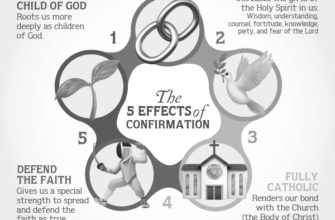You may wonder why my child won’t want to go to an orchestra prove? Or what about football games? Or maybe music classes? All of these things are important, but what about the educational benefits? Read on to find out! Besides, you may even be surprised! This article will give some helpful tips to help you decide whether you should send your child to an orchesterprobe. Then, you will know why music education is essential!
Warum mein Kind nicht zu einer Orchesterprobe kommt
Many young orchester musicians dream of playing in an orchestra. Germany is a musical dreamland. The country boasts numerous orchestras, including Berlin’s Philharmonic. But how can my child become a member? Here are some tips for parents. Let us start by explaining the audition process. The whole faculty will be in the audition room to assess your child’s potential. After that, most of the orchestra will hire new members.
The first step in separating your child from you is ensuring they are safe. When left with a caregiver or parent, they might become nervous and express their fear by crying or vomiting. While this is not always a problem, separating them is a good idea until they’re ready to start the new experience. In the meantime, you should take some time to plan a day out and find a place for them to play.
While the JeKits-Orchester is not a classical Orchester, it does include multiple instruments. In addition, it teaches music together, as a group, in small groups. Ultimately, making music lessons fun and enjoyable for your child is essential. If you want to ensure that your child’s development is boosted and you get the best out of your children, don’t be afraid to try new things!
One of the most critical factors for an orchestra’s success is the ensemble’s size. Generally, a large ensemble has several musicians performing at once, and smaller groups have different instruments. The size of a group depends on the composition. For example, a small group of violins will have fewer instruments than a large orchestra. Moreover, the size of the group can change according to the instrumentation.
Die Bedeutung von Fussballspiele
How vital are soccer games for kids? The new platforms, which include games with no torture, are gaining popularity among kids. These games focus on fun and movement experiences instead of position-specific aspects, like defending a mini-tore. Even more, they are more accessible to children than traditional soccer. Here are five reasons to get your kids involved in soccer. It will teach them the fundamentals of the sport and get them involved with it.

Children need experience. They are not yet ready to learn technical skills or tactical play. And they aren’t prepared to develop self-control or discipline until they are ready. In addition to boosting their development, football games can also help them relax and learn about the game. In addition, children need to know how to cooperate with others and follow the rules. Furthermore, these games build good social skills, serving them well for years.
A positive association between children and football is essential for developing social skills and boosting self-esteem. A child who plays soccer with his friends or parents learns that they can make mistakes and learn from them. Despite these benefits, many children are too timid to play football. But this doesn’t mean that children should not participate in such games. Indeed, these games can help them develop better social skills and a greater sense of self-confidence.
In addition to the obvious benefits of sports and physical activity, they promote early life skills. Active play helps children get to know their world and learn new terms. Games teach kids everyday skills, such as handling challenges and dealing with their daily lives. Furthermore, children who play soccer games prefer topics that relate to their day-to-day lives. Children must enjoy playing soccer games and enjoy them! So, let’s start playing!
Die Bedeutung von Trockenwerden
There are some essential things to remember when dry washing your child. In addition to the right equipment, dry washing requires patience and a thoughtful approach. Following are some practical tips to get started. Here’s why dry washing is so important. Let’s face it: no parent enjoys dealing with wet underwear, but it’s inevitable. Fortunately, several simple ways prevent nighttime wetting and avoid unpleasant surprises.
First, you must understand that a dry hose doesn’t necessarily mean you can’t wash it! The following tips will help you prepare for this challenging transition. The dry hose is a normal part of toddler life. The dry hose is a common problem, whether it’s a diaper or a pair of underwear. It’s important to remember that you’re modeling this behavior for your child so that he’ll take it on his own.
Understanding that your child’s bowel habits will change over time is essential. It would help if you were not surprised when your child’s Blasen und Darmkontrollen rip-off between the second and third birthday. Some children begin to show signs of dryness even before their second birthday. If you notice that your child’s windel is starting to come off, don’t hesitate to remove it. In doing so, you are helping your child learn to cope with adversity.

During the fall and winter, Samuel showed signs of strength. He was a bit unruly in the winter and wouldn’t put himself on topfchens, Klos, or Pipi. The first time he stopped wearing widely, Mio realized he was disobedient. During the fall, he was forced to remove them. Mio quickly realized that this was a problem.
Die Bedeutung von Musikunterricht
In his acclaimed dissertation, The Meaning of Music Education for My Child, German psychologist Klaus Altenmuller argues that the benefits of music education for young children far outweigh the adverse effects. He argues that “music education has a strong and long-lasting effect on children’s social and motor development.”
According to Funk, “music education greatly impacts the development of a child’s sense of identity and self.” This notion is the basis of the Fruhforderkonzept, which emphasizes the interconnection between all the aspects of music education. Parents and children learn about music in music classes through singing and movement. Private music schools also offer this kind of music education to children. Both types of music education are essential and should be pursued.
As for the benefits of music education, it is worth noting that the benefits are many. The first part of a child’s life is the most important and should include social skills such as self-awareness, self-confidence, and group integration. In music, parents will notice that the child’s interests grow and the interest level grows. Many parents are searching for a qualified music teacher for their child.
As a parent, it is essential to understand that the benefits of music education go beyond the benefits of learning an instrument. Music lessons escape the distractions of digital and social media, allowing you and your child to focus on the topic at hand. The result is deepened musical knowledge and an overall decrease in stress and anxiety. The benefits of music education go beyond the immediate benefits of learning the instrument; they also have long-term effects on children.
Die Bedeutung von KiFu für Kinder
The LFV founded the project “Projekt Kivu for Children” in 2007. The technical commission selected Beni Bruggmann to oversee the project until 2012. After this, Klaus Kappeli took over, and the current project director was Pascal Vollmeier. The project aims to improve the training methods by making it necessary for trainers to practice KiFu with children in small groups. The training is done through demonstrations and theory.








